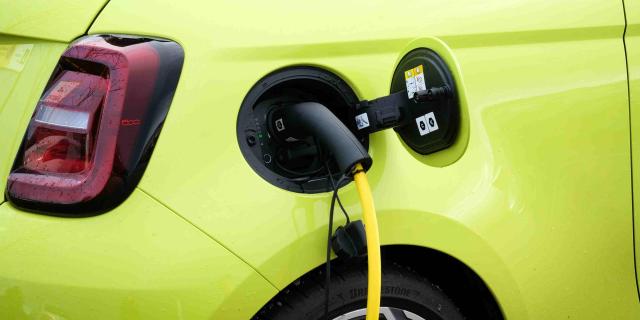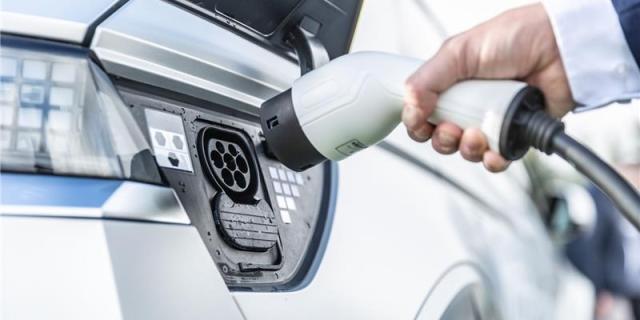Press release: energy, mobility, telematics, ... With the Barometer 2020 you know everything about the fleets in Belgium
Every year, the Arval Mobility Observatory publishes its barometer. The survey was conducted among 5,600 companies in 20 countries, including 300 in Belgium, and was conducted with the Kantar Institute via telephone interviews from 20 January to 14 March (before the Covid-19 measures were announced).
Since the start of the annual barometer, the emphasis has been on the development of the fleet and mobility in the medium and long term. And so the Covid-19 outbreak just after the survey only has a temporary (or no) effect on some results. The 2020 barometer again confirms the rising market trends in the development of alternative mobility solutions, the energy mix and telematics in the medium and long term.
5 Main results - Belgium
# 1 - Belgian fleets have a lot of potential.
The Belgian fleet market has high growth potential. This growth is driven by companies that expect to develop their business first and by the attractiveness of the car as an asset during the recruitment process. 49% think it facilitates the recruitment of new talent and 34% think it helps to retain employees. The useful life of a vehicle is also very similar to the rest of Europe (5.4), while the size of the fleets is larger than the European average.
This growth potential may be affected by the Covid-19 crisis due to the fact that actual mileage is lower than contractual mileage. This is a consequence of working from home and/or reduced commercial activity.
#2 - An advanced energy transition market, with remarkable dynamics among small businesses.
Belgium is an advanced market in the transition of the energy mix and ranks among the top 5 European markets: 45% of Belgian companies have already introduced at least one fuel alternative. Rechargeable hybrids, non-rechargeable hybrids and 100% electric vehicles are the 3 most widely used energies and have the greatest development potential over the next 3 years.
Most companies have adapted their work organisation and are willing to make their fleet greener. Despite Covid-19 there will be no return to the old segmentation of the energy type. Rather, there could be a delay of a few months in the transition process.
#3 - Mobility alternatives are a challenge for the fleet sector.
Belgium is one of the most pioneering European markets for the adoption of alternative mobility solutions (corporate car sharing, bicycle sharing, public transport, mobility budget) by companies of all sizes. In total, 69% of Belgian companies already use at least one of these mobility solutions (compared to 61% in Europe). It is clear that the transition to new mobility is taking place in Belgium. Moreover, Belgian companies are willing to create a mobility plan, regardless of their size.
During the measures, companies are forced to reorganise both internally and externally. One of the most important changes is mass teleworking and the digitisation of communications. In Belgium, an average of 57% of companies are in favour of introducing or extending teleworking. These new trends resulting from the crisis will undoubtedly persist and gain a larger market share.
#4 - Financing methods remain stable, even though companies tend to be more flexible.
The most common financing methods used by Belgian companies are operational leasing (34%), self-purchasing (30%) and financial leasing (25%). In total, 44% of companies plan to introduce operational leasing. Companies are also looking for personalised support and advice from specialists on vehicle selection, financing, cost and tax optimisation, and especially advice on alternative energy.
#5 – An advanced market in telematics for all types of vehicles.
48% of Belgian companies (compared to 33% in the EU) use telematics for control purposes and to increase road safety and driver safety. Nevertheless, telematics is perceived by drivers as too intrusive and hampers its development.
> Read the complete Barometer of 2020 via the button below.
Do you have a question? Send me an e-mail on yves.ceurstemont@arval.be or call me at 02 240 01 99.
Methodology 2020
In Belgium, the research was carried out by the Kantar Institute between 20 January and 14 March 2020 by means of telephone interviews with 300 fleet managers whose fleet included at least 1 vehicle (passenger cars or light commercial vehicles). The panel consisted of:
- 33% of the interviewed companies have less than 10 employees;
- 20% of the interviewed companies have 10 to 99 employees;
- 27% of the interviewed companies have 100 to 499 employees;
- 20% of the interviewed companies have more than 500 employees.
In total, between January and mid-March 2020, 5,600 companies (4,794 in Europe) in 20 countries with at least one vehicle in their fleet were interviewed under the same conditions. The countries surveyed were Austria, Belgium, Czech Republic, Denmark, Finland, France, Germany, Italy, Luxembourg, the Netherlands, Norway, Poland, Portugal, Spain, Sweden, Switzerland, the United Kingdom, Russia, Turkey and Brazil.
DOWNLOAD






